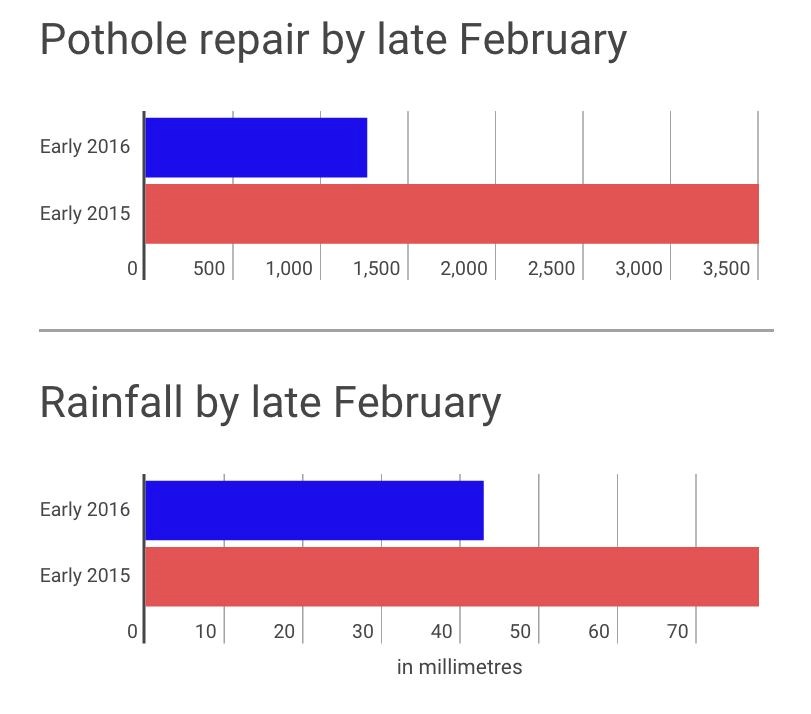Prince George has seen a 63 per cent drop in pothole repairs.
By the end of February, city crews had only repaired 1,267 potholes, compared to 3,506 by the same time last year.
Part of that is to do with precipitation: last year at this time, 77.9 millimetres of rain had fallen on Prince George. By comparison, this year has only seen 42.7 mm in rainfall.
"The volume of annual potholes is weather dependent," said a report to city council.
"Increased precipitation in the form of rain and snow leads to conditions that are conducive to pothole formation."
For the last three years, the annual paving budget has been $7 million, a spike from the $4.5 million price tag in 2013.
That's because, in 2012, the city started focusing on arterial and collector roads with the highest traffic concentrations.
"Coupled with increased capital paving, less water on the roadways assists in reducing pothole volumes," said the report from Dave Dyer, the city's general manager of engineering and public works.
City staff repair potholes in a different way depending on the season. Spring and summer is the best time for repairs because of dry conditions and because hot mix asphalt can be used. The cold mixed used in the winter months is only considered a temporary measure.
"Changing weather, freeze and thaw and the hydraulic action of vehicle tires forcing surface waters back into the pothole will cause the still pliable cold mix to evacuate the pothole area," it noted.
The report included a number of strategies to better maintain the ruts in the road.
That includes employee recycler operation training, Public Works yard development, work to stockpile asphalt millings, researching other community best practices and a better inventory records.
In February, the city announced it would move forward with a plan to purchase a portable asphalt recycler at an expected cost of $175,000.
"The purchase of an asphalt recycler will also provide a means to produce hot mix outside of commercially produced asphalt seasons," the report said.
"Application of hot mix will provide a longer lasting repair, reduce return maintenance visits and reduce the need for cold mix and associated purchase costs."



